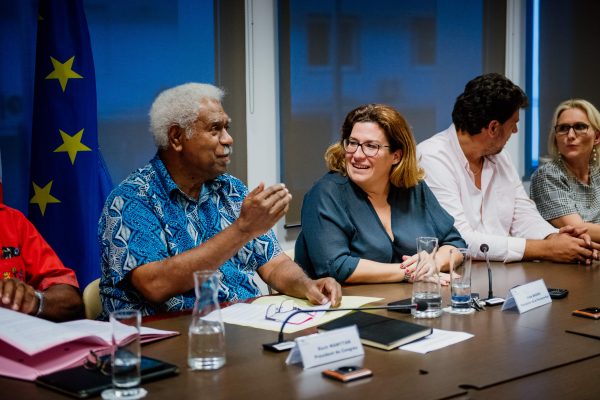On 4 March 2020, after months of disruption, including road blockages, attacks on infrastructure and the withdrawal of the pro-independence parties from the collegial cabinet, loyalist parties reached agreement with independence groups over the future of a multi-billion dollar nickel processing plant.
New Caledonia’s valuable nickel resources (it is the world’s fifth largest exporter and holds at least 10 per cent of global reserves) have been at the heart of the independence movement since the 1960s.
The objection of independence leaders to the sale of the Vale nickel plant last year was no small matter. They opposed several proposals for purchase by multinationals, arguing for a majority (indeed, 100 per cent) local stake in the company. They pulled out of the territory’s collegial cabinet, citing opposition to the deal among a range of grievances.
For the first time ever, independence groups won a majority — 6 out of 11 seats — in the subsequent cabinet election in February 2021, but failed to agree on a new president, bringing government to a halt for all but caretaker functions. They also declined to participate in dialogue about the future of New Caledonia beyond next year, when the latest peace agreement, the Noumea Accord, expires, until the issue is resolved.
The formula agreed upon is, like so many of New Caledonia’s contemporary political agreements, innovative. New Caledonia will retain a 51 per cent share in the plant through its territorial entity the SPMSC (31 per cent) and its salaried workers (21 per cent). The remaining shares will be owned by Swiss-based Trafigura (19 per cent, a reduction over original proposals) and a new company, Prony Resources (30 per cent).
France will back the agreement with a €200 million (US$239 million) loan, and a further €180 million (US$215 million) guarantee, beyond existing substantial tax exemptions. New Caledonia will also retain the mining title and rent the use of its resources to the new company. The deal includes the involvement of Elon Musk’s Tesla, as an industrial advisor, to shape the process from production to delivery and storage of batteries for electric vehicles.
The conclusion of the agreement is important for a number of reasons.
First, the agreement is a vital ingredient for a peaceful future, as it addresses decades-long independence and indigenous concerns over gaining local control of New Caledonia’s precious natural resources.
Second, we may expect renewed dialogue on New Caledonia’s future beyond the third and last referendum on independence that the 1998 Noumea Accord prescribes must be held before the end of 2022. The sole reason for independence leaders’ withdrawal from the dialogue has been resolved. The first two independence referendums supported staying with France, but there is a large and growing indigenous minority favouring independence (from 43 per cent in 2018 to 47 per cent in 2020). Whether or not New Caledonians again choose to stay with France in the third vote, agreement must be struck on fundamental questions of governance beyond 2022.
Third, agreement over the mine sale may improve the atmosphere to break the current deadlock over the New Caledonia cabinet. There is no doubt that the victory of the independence parties in the cabinet election, precipitated by their withdrawal, provided impetus for the resolution of the mining issue. Still, personal divisions remain between independence leaders over their two candidates, preventing the election of a president in two votes over the past month.
Fourth, the engagement of Tesla, albeit in a non-share role, creates a nexus with a prominent potential US client, also active in the European electric vehicle industry, which will dilute the dependence of New Caledonia’s nickel industry on China. This will have direct strategic implications.
The resolution of this fundamental issue through collaboration, not only between the independence and loyalist groups but also with the French government, provides an opportunity to build a new and positive outlook. This work was done during a period when New Caledonia was ravaged by Cyclone Niran and suffering a resurgence of COVID-19 cases requiring lockdown measures. This success underlines the need to start the serious detailed work of reconciling the interests of all parties over the broad range of governance issues essential for a peaceful future.
Denise Fisher is a Visiting Fellow at the Centre for European Studies, Australian National University, and a former Australian consul-general to Noumea.

